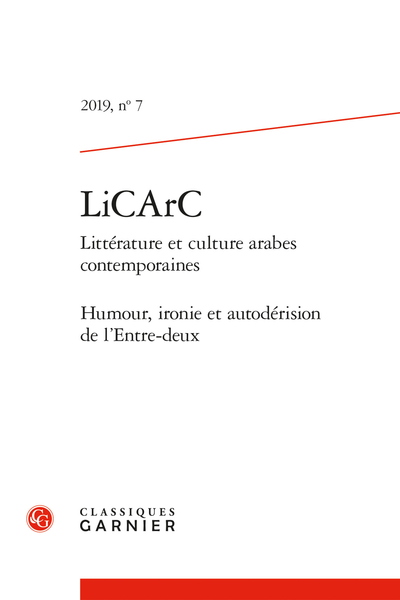
Résumés
- Type de publication : Article de revue
- Revue : LiCArC Littérature et culture arabes contemporaines
2019, n° 7. Humour, ironie et autodérision de l’Entre-deux - Pages : 245 à 253
- Revue : LiCArC (Littérature et culture arabes contemporaines)
- Thème CLIL : 4033 -- SCIENCES HUMAINES ET SOCIALES, LETTRES -- Lettres et Sciences du langage -- Langues étrangères
- EAN : 9782406098508
- ISBN : 978-2-406-09850-8
- ISSN : 2426-8852
- DOI : 10.15122/isbn.978-2-406-09850-8.p.0245
- Éditeur : Classiques Garnier
- Mise en ligne : 23/12/2019
- Périodicité : Annuelle
- Langue : Français
Article de revue : Précédent 18/18